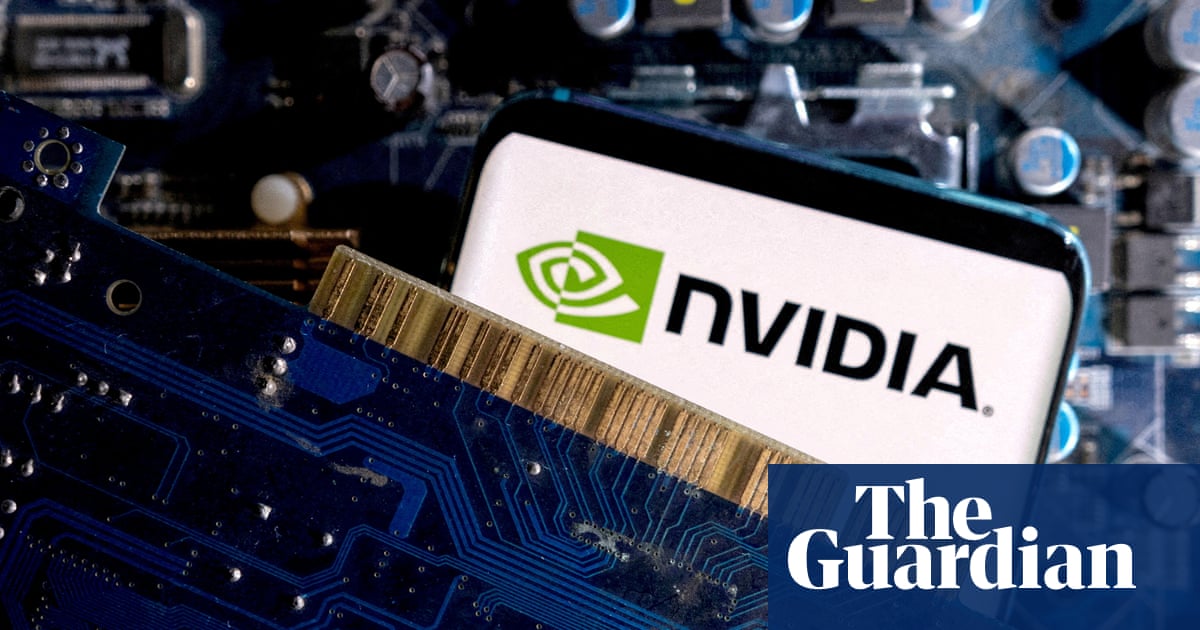Nvidia Plans $500 Billion Investment in US AI Infrastructure Amid Upcoming Chip Tariff

Nvidia’s Ambitious AI Infrastructure Plans
Nvidia, a significant player in the chip design industry, has announced its plans to invest up to $500 billion (£378 billion) in artificial intelligence (AI) infrastructure in the United States over the next four years. This announcement highlights the growing trend among manufacturers to bolster domestic operations amid ongoing tariff threats from former President Donald Trump.
The Context of Nvidia’s Investment
Nvidia’s decision comes in the wake of Trump’s recent comments about imposing additional tariffs on semiconductors, most of which are manufactured in Taiwan. The chipmaker’s CEO, Jensen Huang, recently met with Trump at his Mar-a-Lago resort, which may have spurred further discussions about the company’s production strategies.
Domestic Manufacturing Initiative
Nvidia’s strategy involves collaborating with manufacturing partners to design and build new factories in the U.S. The goal is to create advanced "supercomputers" domestically. Though Nvidia designs its chips, it typically outsources production to third parties like the Taiwan Semiconductor Manufacturing Company (TSMC). Last fiscal year, Nvidia reported costs of $16.6 billion related to manufacturing, testing, and chip production.
Current Production Developments
Production of Nvidia’s highly sought-after Blackwell graphics processing unit has already commenced at TSMC’s facility in Phoenix, Arizona. In addition to this, new plants are under construction with manufacturers Foxconn in Houston and Wistron in Dallas. Both facilities are expected to ramp up mass production over the next year to year-and-a-half.
Huang emphasized that increasing manufacturing capabilities in the U.S. will enable Nvidia to better meet the soaring demand for AI chips while also strengthening its supply chain and overall resilience. The White House has lauded this move as an example of the "Trump Effect," suggesting it aligns with the former president’s economic policies.
Impact on Nvidia’s Market Position
Nvidia’s stock has surged dramatically over recent years, mainly due to the high demand for its AI chips, with its market valuation increasing by more than 1,000% since 2020. However, ongoing tariff uncertainties have significantly impacted the company’s market value in 2023, resulting in a decline of approximately 20% in its share price.
Global Market Reactions
As Nvidia’s plans unfold, global stock markets have shown signs of cautious optimism. Recently, Japan’s Nikkei index rose by 0.8%, while South Korea’s Kospi index increased by 0.9%. Conversely, Hong Kong’s Hang Seng suffered a slight decline of 0.16%, and Chinese markets were down by 0.1% in Shanghai. In Europe, the UK’s FTSE 100 and Germany’s DAX also saw minor gains, reflecting a recovery trend.
Tariff Considerations
Despite significant manufacturing investments, Trump remains committed to imposing tariffs on semiconductor and pharmaceutical imports. The U.S. Department of Commerce recently launched an investigation into the effects of importing these goods on national security. Although products from the semiconductor and pharmaceutical sectors were initially exempt from the 10% tariffs implemented on April 5, Trump suggested that a tariff rate could be announced soon, with some flexibility for specific companies in the industry.
U.S. Semiconductor Landscape
The U.S. heavily relies on semiconductor imports from Taiwan. Following Trump’s imposition of a 32% tariff on Taiwanese products, which has since been suspended for 90 days, the Biden administration has sought to enhance domestic semiconductor production. The Biden administration’s Chips Act, enacted in 2022, aims to provide substantial subsidies to chipmakers willing to expand their manufacturing operations within the United States.
Additionally, various global pharmaceutical companies have also announced significant investments in the U.S. this year as they maneuver to avoid the impact of potential tariffs. Recently, Novartis, a Swiss pharmaceutical manufacturer, revealed plans to allocate $23 billion to develop and expand ten facilities across the U.S.
This reshaped landscape of AI and semiconductor manufacturing highlights a pivotal moment in U.S. economic and technological independence, particularly in the tech sector, as companies like Nvidia bolster their operations domestically amidst shifting global trade dynamics.






